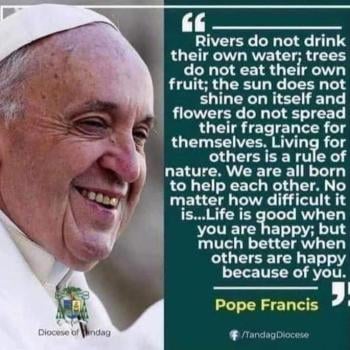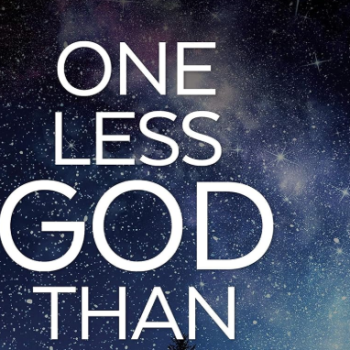It seems as though we're hearing of a new environmental disaster every week. America is confronting one of the worst -- perhaps the worst -- environmental disaster in its history. Does it grieve God to see environmental disasters like this? Should it grieve us? What ought to be our response as believers, and is there any way in which our response as believer should differ from the responses of non-believers?
Jim Moriarty and I just talked about this. He is in the book and runs Surfrider Foundation. It is a secular environmentalist organization that exists to protect the oceans and beaches. I think our selfish indifference grieves God and that is reflected in environmental disasters. I think that God created the heavens and the earth and it was good, but we in big and little ways degrade it. The strange thing is that this book started out as a result of an environmental article I wrote for Creation Care Magazine. In it I said I was not an environmentalist, but that I believed that because God reveals himself in nature (Rom. 1) we have a duty to preserve that revelation. In the context of this BP spill, consider all of the people that had a daily opportunity to see God though his creation and now can't. That should grieve us.
You also interviewed people as different as Tony Campolo and James Dobson. They are often caricatured as people who care (in Campolo's case) only about liberal political causes and as someone who cares (in Dobson's case) only about abortion and gay marriage. How true are these characterizations?
They are true to some extent. I like both of them, but they both have reached the point of defining themselves by issues. I don't think that is the heart of the men; I think they both love Christ and want others to do the same, but I do think when you spend your life on issues, you risk that definition. I also think that both men have to speak loudly and strongly to be heard because the media (for the most part) and frankly most of us don't like nuanced approaches to issues. We want to put people in boxes so we can accept or reject them as a whole. This is true of Obama. The "Right" dismisses him as fake and the "Left" embraces him as real. The same thing happened with Bush. I don't think that is the right answer. I don't agree with everything Campolo or Dobson think, but I think they are both worth listening to.
What are first steps for churches that want to begin to take the Humanitarian Jesus seriously?
Figure out how much of what they are doing is inside the walls and how much is outside. How engaged are they? How much are they trying to meet people where they are and get invested in the world around them? I think we have to get honest about where we stand as a "church" before we can move forward. In large measure, the church has become as consumptive as the world. We pat ourselves on the back if we give 10% away and live off the other 90%. If a non-profit did that, it would be out of business in a week. Most good non-profits try to live off 10% and invest 90% in the work they are doing. Should we as a "church" have a lesser standard?
And how can parents raise their children to love and carry forth the mission of the Humanitarian Jesus?
First, by presenting our children with a big world. We can do that now. My six-year-old can see the other side of the world online. She can begin to understand that things really are broken, even though her world doesn't seem that way. Second, by fostering a spirit of thanks by spending time each day thanking God with our kids for everything in our lives. This is an affirmative way to shape a worldview that says thank you to God for what He has given us rather than always asking for more. Lastly, by engraining our children with giving as a lifestyle, not just a good idea. We need to raise our children to focus on people and investment rather than stuff and accumulation -- to live with open hands. We need to encourage our children to give themselves and their things away and we do that by living it for and with them.
If Jesus were alive today, would he be a humanitarian?
No doubt. He would be investing his life, his time, and his teaching in the lives of the people around him. He would be doing it in word and deed because he would see the truth that his creation, including each of us, are broken and need the solution only he can bring. He would be drawing people to himself and in so doing with life -- real life -- both temporal and eternal.
Christian Buckley is a husband, father, lawyer, entrepreneur, non-profit leader, writer, and follower of Christ. At the age of 28, he left a successful corporate law practice and six-figure income to embark on a practical pursuit of discipleship. Over the past five years, his work has included rebuilding and helping launch several national ministries (Christian Surfers United States & Kor Ministries), litigating on behalf of California death row inmates and other prisoners, providing strategic organization and business consulting services, and launching several companies. His true passions are revealed in his work at thinkmoretruth.com and with his newest philanthropic venture, The Glue Network. Christian lives in San Diego with his wife of eleven years, Bridget, his daughter Maeve, and his son Brendan. He received a J.D. with Specialization in Business Law from UCLA and a Bachelor's degree in History from the University of California, Irvine. A former beach lifeguard, he can be found in the ocean when at all possible.
See his new book, Humanitarian Jesus.
For more articles like this, see Patheos' Evangelical Portal.





